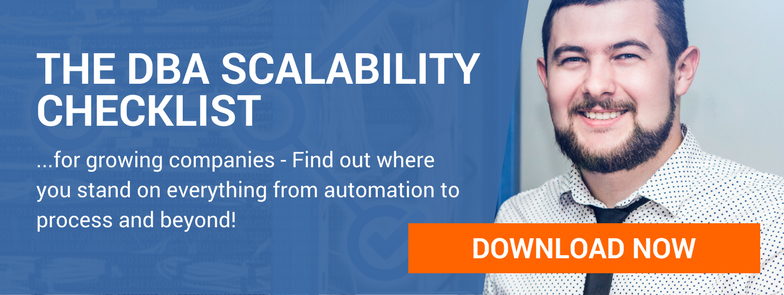For many organisations today, spiralling IT costs are a major concern. From the cost of operating large server farms, to staffing and maintenance costs, IT budgets are growing exponentially in many industries.
To help businesses to help mitigate some of the costs of working with large server farms, and to help their staff be more efficient, several solutions now exist for monitoring and managing databases. From cutting down on unnecessary bills to making DBA teams more productive and streamlining workflows, these tools are built from the ground up for efficiency, scalability and use by large enterprises.
Here, we’ll cover four ways that these solutions can keep your IT costs in check and improve efficiency.
Fewer Serious Incidents
Disasters and serious incidents represent a very high financial cost for businesses, both in the time spent planning and the cost of restoring services and maintaining security.
For many IT teams, a lack of oversight over their systems means that emerging incidents aren't discovered until it's too late. By making use of database monitoring solutions, DBAs can utilise proactive monitoring and analytics to detect and correct problems before they become serious. Monitoring tools can also be used to discover security weaknesses, to identify struggling infrastructure, and to institute regular preventative maintenance across your servers and instances.
Lower Licensing Costs
Many software providers offer several forms of license for organisations to choose from, with an enterprise license usually being the most expensive and offering access to the full range of software features. Quite often, however, DBAs won't use or need the full suite of features that enterprise licenses unlock. Despite that, many businesses still pay for enterprise licenses which they don't need, either by accident or because their needs have changed and they lack the time, tools or expertise to detect and correct the situation.
Database management tools help to solve this problem. By analysing actual usage and reporting on which software and features are being used versus licensing level, DBAs can leverage management tools to track and adjust their licensing levels.
In the case of Oracle, in particular, many DBAs overstep the standard license terms inadvertently or by accident. Oracle always supplies its full suite of tools to DBAs regardless of license, and later demanding more money if they discover via audit that a company used tools or features that they hadn’t been licensed for - something easily done when changing just one option can trigger full and costly enterprise licenses.
Optimised Performance
The performance of your IT systems is vital to your business, not just because it provides your customers and staff with a smooth service but because it saves you money too. Poorly performing servers can lead to slowdowns at work, potentially disrupting services to customers which could cost your organisation valuable business and hurt your reputation.
With the help of database management tools, DBAs can optimise the performance of your organisation’s IT systems, improving your setup to ensure that it constantly runs smoothly.
Be More Productive
DBA productivity is one of the key areas that can be improved by any enterprise looking to cut costs and improve operational expenses. With the right solutions, DBAs can get access to the analytics, insight and monitoring that they need to perform their jobs efficiently and to allocate their time where it’s most needed.
Many database management tools offer streamlined interfaces that allow DBAs easy access to all the information that they need and the ability to monitor multiple instances at once. Tools like this also combine the features of many other individual server tools, saving time for DBAs and reducing the amount of time spent training to use new software.








